Rhetorical analysis essay topics encourage you to examine how an author or speaker uses language and persuasion techniques to communicate a message. Unlike opinion-based essays, rhetorical analysis topics focus on the how, not the what. You need to master the art of persuasion and try to understand what makes an argument effective or not.
In a rhetorical essay, you might analyze:
- Famous speeches
- Political ads
- Opinion articles
- Movie scenes or scripts
- Books and poetry
- Song lyrics or social media posts
Whether you’re examining a presidential address or a TED Talk, the main secret is to choose something that resonates with you. In this article, you’ll find plenty of good rhetorical analysis topics for college students and high school learners, short articles for rhetorical analysis, a writing guide, and more. Need support crafting the perfect essay? Our professional writing help is available 24/7!
🔝 Top 10 Rhetorical Analysis Topics
- Consumerism in Fight Club
- Dangerous obsession in The Birthmark
- Main rhetorical features of The Lottery
- Rhetorical devices in Song of Solomon
- Main rhetorical devices in The Scarlet Letter
- What made the I Have a Dream speech so powerful?
- Raven symbolism in Edgar Allan Poe’s The Raven
- The significance of the I Am Prepared to Die speech
- How does censorship affect society in Fahrenheit 451?
- Inequality in Priyanka Chopra’s speech Full Power of Women
The above-listed topics focus on different types of texts—poetry, prose, and speeches—that are often analyzed rhetorically. For instance, The Raven by Edgar Allan Poe is a famous poem, Fight Club is a novel by Chuck Palahniuk, and I Am Prepared to Die is a renowned speech by Nelson Mandela. In the following section, these and other subjects will be explored in more detail. However, regardless of your chosen topic, crafting an impressive rhetorical analysis essay can be challenging, as the task requires time, effort, and specialized knowledge. Remember, our analytical essay writers are always here to assist with your paper, whether it’s a speech or novel analysis. They will help you understand the devices used in the text and the author’s message.
💡 Things to Rhetorically Analyze
Rhetorical analysis aims to understand how the author uses language and other rhetorical devices to persuade, inform, or entertain the audience.
There are many things you can rhetorically analyze. All of them involve some kind of communication between the author and the audience.
Here are some examples of what your rhetorical analysis can focus on:
- Prose fiction. You can analyze a short story or a novel. For example, focus on the plot and examine how the events are related to the main idea. You can also pay attention to the author’s use of figurative language, point of view, and voice.
- Poetry. When analyzing a poem, you might examine the author’s use of metaphors, similes, and other tropes. In addition, look into the structure, form, and tone of the analyzed work.
- Nonfiction. Aside from fiction, you can analyze nonfiction articles and books. Investigate whether the author has achieved their goal and whether they support the main argument effectively. Focus on the strength and appropriateness of the evidence, reasoning, style, and tone.
- Advertisements and TV commercials. When analyzing an ad or a commercial, you can determine its target audience and the persuasive techniques used to convince people to buy a product. In addition, it is critical to examine visual and audio elements and their effects on the perception of the message.
- Speech. A speech analysis involves assessing the speaker’s credibility, rhetorical devices, and appeals, including pathos, logos, and ethos. Also, examine the effectiveness of speech delivery by paying attention to the speaker’s body language and tone of voice.
- Multimodal texts. Multimodal texts include YouTube videos, performances, and digital stories. When analyzing such texts, evaluate how the combination of textual, visual, and audio elements affects the audience’s perception of the message.
✍️ Rhetorical Topics on Fiction
Fiction is written from imagination. Like any literature, fiction has its way of communicating a message. You may choose to analyze your personal response to the text. Or, study its background and think about the author’s intention. The following list will inspire ideas for a great rhetorical analysis paper topic:
- How is the theme of war changes presented in The Things They Carry?
- Analyze the main rhetorical features of The Great Gatsby.
- The simple language in All the Light We Cannot See by Anthony Doerr.
- How J.D. Salinger reveals the life of a teenager in The Catcher in the Rye.
- The narrative form of Millenium Hall.
- How Erin Morgenstern creates diverse characters in The Night Circus.
- The theme of justice in The Heretic’s Daughter.
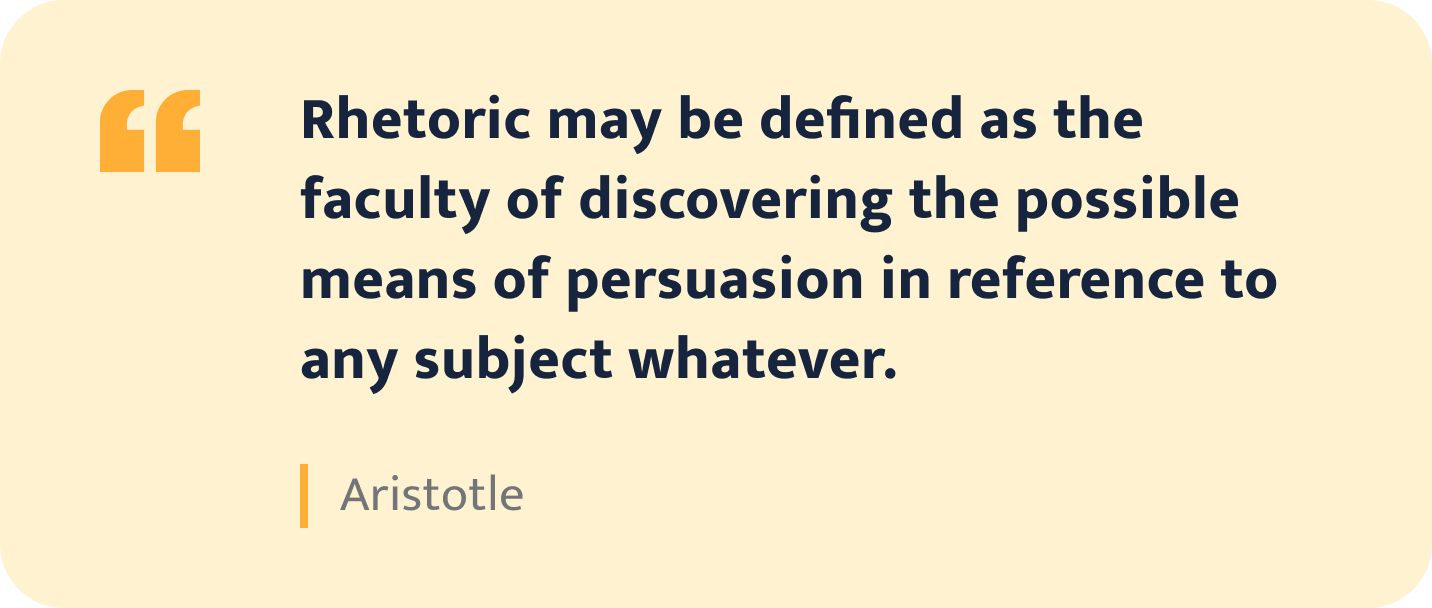
- Language of mystery in The Secret Life of Violet Grant.
- How is the character development presented in The Alchemist?
- Voice of the author in The Fault in Our Stars by John Green.
- The conflict between characters in The Poet X.
- Empathy in Do Androids Dream of Electric Sheep?
- Analyze Prudence Shen’s writing techniques in Nothing Can Possibly Go Wrong.
- Love and crisis in Exit West by Mohsin Hamid.
- How is the theme of friendship delivered in Code Name Verity?
- Lord of the Flies: civilization vs. savagery.
- The theme of elitism in One Hundred Years of Solitude.
- Why John Steinbeck emphasizes dreams in Of Mice and Men.
- Rhetorical devices used in The Sense of an Ending.
- Lincoln in the Bardo: reflections on humanism.
- The language of shame in The Vegetarian by Han Kang.
- Behavior in The Slipover Sweater by Jesse Stuart.
💬 Rhetorical Analysis Topics: Speeches
There are quite a few legendary speeches in history. If you want to analyze one, answer these questions:
- What’s the objective of the speaker?
- What is the historical background of the speech?
- What could be the audience’s expectations?
Start thinking about your thesis statement as you select one of the topics below:
- Rhetorical devices in The Campaigns of Alexander by Alexander the Great, 326 BC.
- Persuasion in The Third Philippic by Demosthenes, 342 BC.
- Expressive means in Funeral Oration by Pericles, 431 BC.
- Explore the way Theodore Roosevelt uses rhetoric in The Man with the Muck-Rake, 1906.
- Rhetorical analysis of Pope Urban II’s Speech at Clermont, 1095.
- Queen Elizabeth’s intentions in Spanish Armada speech, 1588.
- Rhetorical devices used in George Washington’s Resignation Speech, 1783.
- How Al Gore persuades the audience in Nobel Prize Speech, 2007.
- Expressive means used in Ain’t I A Woman? by Sojourner Truth, 1851.
- Emotional appeal in Chief Joseph’s Surrender Speech, 1877.
- Historical context of Freedom or Death by Emmeline Pankhurst, 1913.
- Ways to engage the audience in Franklin D Roosevelt’s Inauguration Speech, 1933.
- Rhetorical devices used in We Shall Fight on the Beaches Speech by Winston Churchill, 1940.
- The main objective of Gettysburg Address by Abraham Lincoln, 1863.
- Heroism in Charles de Gaulle’s The Appeal of 18 June, 1940.
- Emotional language in William Lyon Phelps’s The Pleasure of Books, 1933.
- How does Mahatma Gandhi persuade the listener in Quit India, 1942?
- Main rhetorical features of I Have a Dream speech by Martin Luther King, Jr., 1963.
- What expressive means does Nelson Mandela use in I Am the First Accused, 1964?
- How John F. Kennedy engages with the audience in his Inauguration Speech, 1961.
- The context of Address to the Nation on the Challenger by Ronald Reagan, 1986.
- Gratitude in Lou Gehrig’s Farewell to Baseball speech, 1939.
📜 Topics for Rhetorical Analysis: Poetry
There are so many unique things a poem can convey. Analyzing it will require multiple careful readings. In your essay, answer the following questions:
- Who is the speaker in the poem?
- Does the title influence your idea of the meaning?
- Is there anything peculiar about the poem’s rhythm and structure?
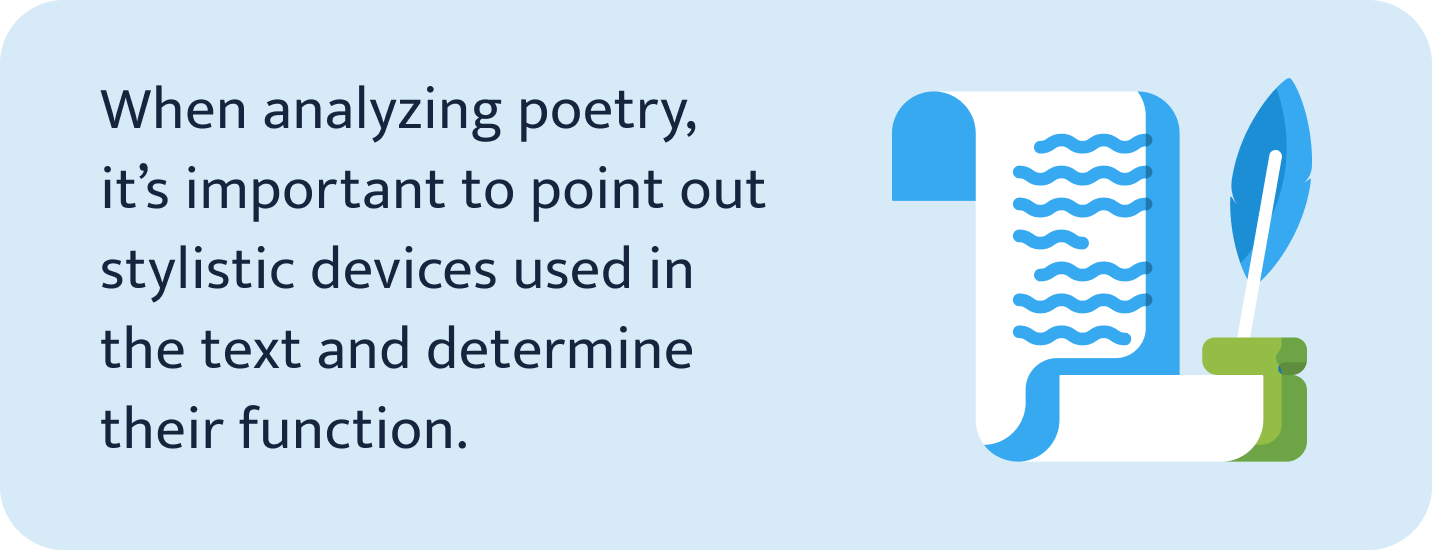
- Analyze the use of personification in William Butler Yeats‘ Brown Penny.
- The narrator in Allen Ginsberg’s America.
- How Langston Hughes uses emotional appeal in Let America Be America Again.
- Regret in The Mother by Gwendolyn Brooks.
- The key allegories used in Daddy by Sylvia Plath.
- The mood of And the Moon and the Stars and the World by Charles Bukowski.
- William Blake’s A Poison Tree: themes of anger and darkness.
- What rhetorical devices does Walt Whitman use in O, Captain! My Captain!
- Symbolism in Walt Whitman’s Crossing Brooklyn Ferry.
- Faces of love in A Red, Red Rose by Robert Burns.
- Analyze the role of contrast in I Know Why the Caged Bird Sings by Maya Angelou.
- How does Stephen Crane characterize war in Fast Rode the Knight?
- The function of street language in Dream Deferred by Langston Hughes.
- Self-acceptance in Maya Angelou’s Phenomenal Woman.
- The theme of nature in Mary Oliver’s August.
- Unorthodox punctuation in I Carry Your Heart with Me by E. E. Cummings.
- To You by Walt Whitman: what is the function of the title?
- The setting in A Dream within a Dream by Edgar Allan Poe.
- Who is Emily Dickinson’s There is another Sky addressed to?
- Analyze Shel Silverstein’s irony in Messy Room.
- The speaker in Stopping by Woods on a Snowy Evening by Robert Frost.
- Analyze main rhetorical devices used in W. H. Auden’s Funeral Blues.
📰 Articles for Rhetorical Analysis
To analyze an article from a rhetorical perspective, try reading it with a purpose. It will help you determine the author’s main point. Besides, you can consider analyzing the article title and its role in persuasion.
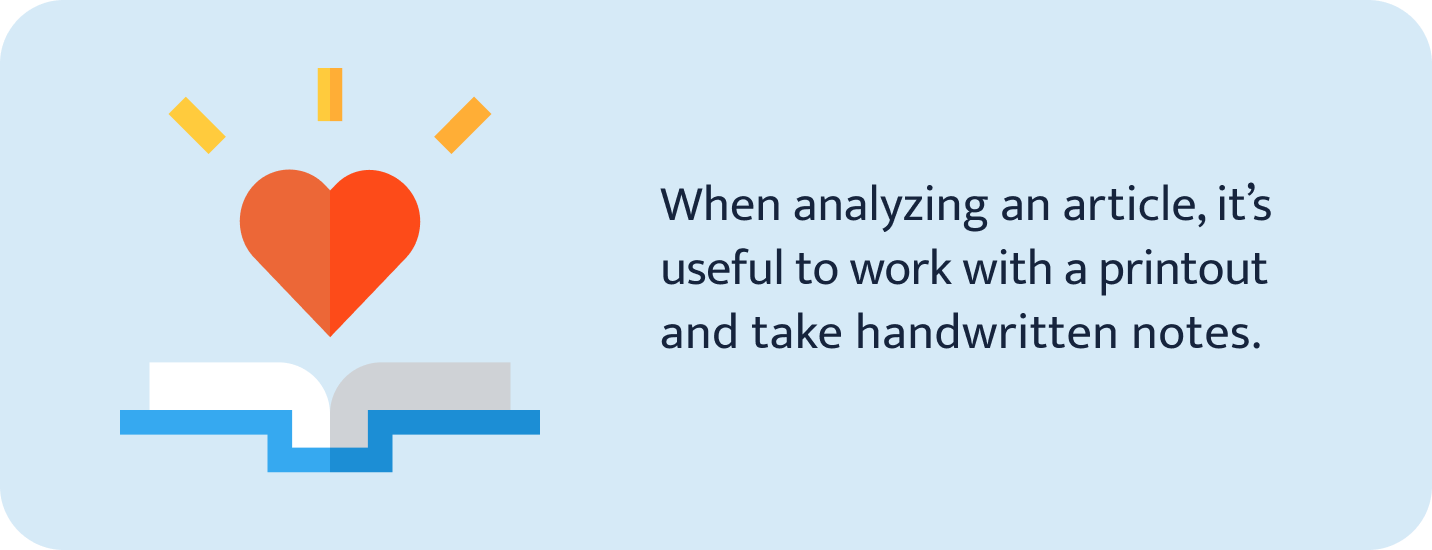
- People vs. nature in The Killer in the Pool by Tim Zimmerman.
- What are the arguments presented by David Grann in The Mark of a Masterpiece?
- A thief’s double life in Joshua Bearman’s Art of the Steal.
- Analyze the narration in Hope. Change. Reality. by Wil S. Hylton.
- William Finnegan’s In the Name of the Law and its emotional appeal.
- Persuasive devices used in Mississippi’s Corrections Reform by John Buntin.
- Politics in Kenneth Jost’s article Unrest in the Arab World.
- Power fantasy in Video Games: the Addiction by Tom Bissell.
- The theme of prejudice in Forrest Wilder’s He Who Casts the First Stone.
- Credibility in The Little Pill That Could Cure Alcoholism by James Medd.
- Ways to connect with the audience used in Solitude and Leadership by William Deresiewicz.
- The way Zach Zorich uses rhetorical devices in Should We Clone Neanderthals?
- Acceptance in Autism’s First Child by John Donvan and Karen Zucker.
- How motherhood is presented in Scott Carney’s Inside India’s Rent-A-Womb Business.
- The theme of hope in Are You Sure You Want to Quit the World? by Nadya Labi.
- Howard Jacobson’s On Taking Comic Novels Seriously: what helps to persuade the reader?
- How Jonah Weiner uses social media in Kanye West Has a Goblet.
- What rhetorical devices Beth Kowitt most prominently uses in Inside the Secret World of Trader Joe’s?
- The theme of success in Seven Years as a Freelance Writer by Richard Morgan.
- Consumerism in Why Stuff Is Not Salvation by Anne Quinden.
- Analyze the use of humor in Rick Bragg’s article The Guiltless Pleasure.
- Ways of engaging with the audience in The Man the White House Wakes Up to by Mark Leibovich.
📚 Rhetorical Topics in Non-Fiction
The term “non-fiction” refers to writings based on facts. When analyzing non-fiction, research the context surrounding the text. It is also important to pay attention to the way the text is written. Think about the author’s objective and who the target readers are. This will help you carry out a thorough rhetorical analysis.
- Point out the main rhetorical devices used in A Brief History of Time.
- The theme of racism in I Know Why the Caged Bird Sings.
- Abuse and sympathy in In Cold Blood.
- War and trauma in John Hersey’s Hiroshima.
- How the theme of grief is discussed in H Is for Hawk.
- Analyze the main rhetorical features in Isak Dinesen’s Out of Africa.
- Voice of the narrator in Farley Mowat’s Never Cry Wolf.
- How Nick Hornby explores fandom in Fever Pitch.
- The emotional appeal in Endurance: Shackleton’s Incredible Voyage.
- Elie Wiesel’s Night: the loss of innocence.
- What makes M.F.K. Fisher’s How to Cook a Wolf inspiring?
- Discuss the title’s function in A Moveable Feast.
- The theme of overcoming in Alexander Hamilton by Ron Chernow.
- What’s the role of setting in Dreams from My Father: a Story of Race and Inheritance?
- How to Win Friends and Influence People: what persuasive devices are used in it?
- The theme of grief in The Year of Magical Thinking.
- Life on the Mississippi: past and present.
- How Marshall McLuhan explores communication in The Medium is the Message.
- Persuasion in Silent Spring.
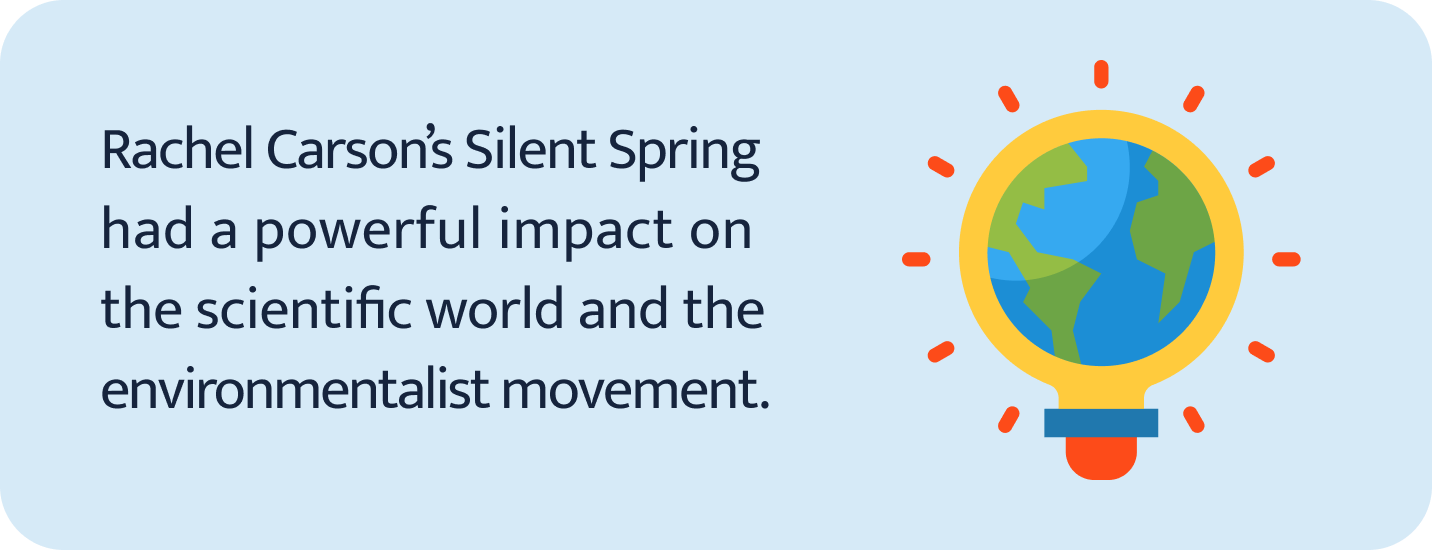
- The Right Stuff: the themes of courage and heroism.
- What makes Anne Frank: the Diary of a Young Girl terrifying?
- Emotional appeal in Goodbye to All That.
📺 Rhetorical Analysis Topics: Advertisements
The primary purpose of any ad is persuasion. A good advertisement establishes the connection between the product and the consumer.
Pay attention to the following points:
- What’s the overall impression of the advertisement?
- What’s the primary audience?
- Are the rhetorical devices used effectively?
You can write an interesting rhetorical analysis essay based on one of the advertisements from the following list:
- Dunkin’ Donuts: America Runs on Dunkin.
- California Milk Processor Board: Got Milk?
- Lay’s: Betcha Can’t Eat Just One.
- Red Bull: Red Bull gives you wings.
- The Mosaic Company: We Help the World Grow the Food It Needs.
- Meow Mix: Tastes So Good, Cats Ask for It by Name.
- Nike: There Is No Finish Line.
- Coca Cola: Friendly Twist.
- M&M: Melts in Your Mouth, Not in Your Hands.
- BMW: Designed for Driving Pleasure.
- McDonald’s: The Simpler, the Better.
- Taco Bell: Think Outside the Bun.
- L’Oréal: Because You’re Worth It.
- Gillette: The Best a Man Can Get.
- Apple: Think Different.
- Panasonic: Ideas for Life.
- Chanel No.5 The Film.
- Dollar Shave Club: Shave Time. Shave Money.
- Capital One: What’s in Your Wallet?
- Harley Davidson: All for Freedom. Freedom for All.
- Levi’s: Quality Never Goes out of Style.
- Disneyland: The Happiest Place on Earth.
🎥 Movie Monologues: Topics for Rhetorical Analysis
In some movies, a character gives a speech that captures everyone’s attention. Making a rhetorical analysis of the movie monologue will require making observations, such as:
- Characterize the speaker and their intentions.
- Describe the scene where the monologue takes place.
- Pay attention to the vocabulary and the tone of voice.
Here are a few famous movie monologues that can fit well into your rhetorical essay.
- Chris Evans in Avengers: Endgame.
- Anne Hathaway in The Princess Diaries.
- Octavia Spencer in The Help.
- Sam Worthington in Avatar.
- Mel Gibson in Braveheart.
- Jennifer Lawrence in The Hunger Games: Catching Fire.
- Gregory Peck in To Kill A Mockingbird.
- Samuel L. Jackson in Pulp Fiction.
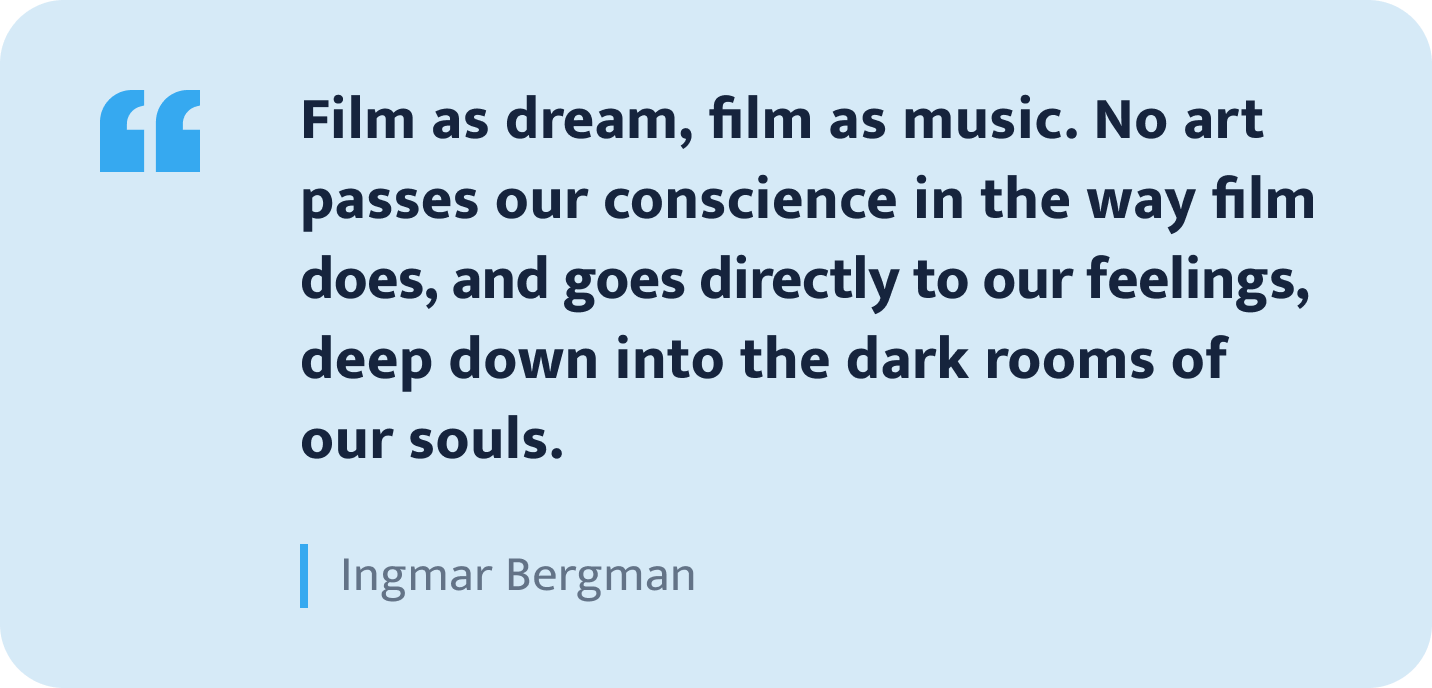
- Sylvester Stallone in Rocky Balboa.
- Meryl Streep in Sophie’s Choice.
- Tom Wilkinson in Michael Clayton.
- Ellen Burstyn in Requiem for a Dream.
- Morgan Freeman in The Shawshank Redemption.
- Charlie Chaplin in The Great Dictator.
- Charlize Theron in Monster.
- Wes Bentley in American Beauty.
- Robin Williams in Good Will Hunting.
- Viggo Mortensen in Return of the King.
- Salvatore Corsitta in The Godfather.
- Angela Lansbury in The Manchurian Candidate.
- Laurence Fishburne in The Matrix.
- Viola Davis in Doubt.
📄 Short Articles for Rhetorical Analysis
Short articles are perfect if you’re just learning to do a rhetorical analysis. By analyzing brief texts, you can develop critical thinking skills and learn to evaluate the arguments. Below, you’ll find compelling rhetorical analysis essay topics for evaluating short articles:
- Study the peculiarities of style and tone in Gilligan’s “Food Deserts Aren’t the Problem.”
- Rhetorical devices in “Why Americans Suddenly Stopped Hanging Out” by Derek Thompson.
- What evidence does Rachel Jones use in the article “Homemade Is the New Organic”?
- How logical are Kornhaber’s arguments in “The Fabulous Desperation of Our Celebrities?”
- Evaluate the authors’ and bias in “Can We Keep Time?” by Rashid and Bogost.
- How effective is Fattal’s argument in the article “How to Disagree Better”?
- Assess the emotional appeal of Cogan’s “We Shouldn’t Have to Live Like This.”
- The use of allusion in “The Paradox of Stay-at-Home Parents” by Elliot Haspel.
- What is Michael Pollan’s goal in “The Intelligent Plant”?
- Open-ended questions in Charley Locke’s “What You Can Learn from Regret.”
- Study the rhetorical devices in “Why the Marriage Rate Is Falling Faster for Some” by Jonquilyn Hill.
- How effective is Vega’s use of hyperbole in “The Evolution of the Movie Backdrop?”
- Explore the historical references in “What’s Behind the Power of Tiny Eyeglasses?”
- Study the characteristics of figurative language in Blight’s “A Yankee Apology for Reconstruction.”
- What rhetorical devices did Kelsey Piper use in “Can Effective Altruism Stay Effective?”
🎓 Rhetorical Analysis Topics for College Students
Rhetorical analysis can be used to examine not only articles but other types of text as well! Below, you’ll discover some topics for a rhetorical analysis essay that you can use to evaluate books, speeches, TED talks, and commercials:
- The target audience of the “Make Your Wishes Come True” advertisement by WhaleCo Inc.
- The rhetorical devices in Pico Iyer’s “The Beauty of What We’ll Never Know.”
- Analyzing the language of leadership in Winston Churchill’s WWII speeches.
- The role of metaphor and imagery in The Lord of the Rings by Tolkien.
- What persuasive techniques are used in the “Ever Wonder?” advertisement by KitKat?
- Oprah’s 2018 Golden Globes speech and its delivery features.
- The use of figurative language in Harper Lee’s To Kill a Mockingbird.
- Estimate the speaker’s credibility in “How Accurate Is the Weather Forecast?” by Mona Chalabi.
- Analyze the tone and style in Jane Austen’s Pride and Prejudice.
- What appeals does Tzeporah Berman use in her speech “The Bad Math of the Fossil Fuel Industry”?
- Visual and audio elements in “Fan Favorite” by Chipotle Mexican Grill.
- Study the persuasion techniques used in George Orwell’s 1984.
- Conduct a plot analysis of F. Scott Fitzgerald’s The Great Gatsby.
- Evaluate the characteristics of Steve Jobs’s rhetoric used in Apple product launches.
- What body language does Kare Anderson use in her TED Talk “Be an Opportunity Maker”?
📝 Opinion Articles for Rhetorical Analysis
Opinion articles are interesting subjects for rhetorical analysis since they have rich content full of persuasive language and rhetorical devices. Check out our rhetorical analysis essay topics to get inspired:
- Evaluate the author’s style and tone in the article “Youths Combat the Mental Health Crisis.”
- Emotional appeals in Lamott’s “A Superpower of Older Age: Powerlessness.”
- Analyze rhetorical devices in “Why Our Fear of Cancer Is Outdated — and Harmful” by Ropeik.
- The use of historical references in “The Fight for Racial Justice” by Angela Davis.
- How effective is Brown’s argument in the article “Ending the Sale of Menthols?”
- The use of metaphors and analogies in “The Binge Breaker” by Bianca Bosker.
- What persuasive techniques does Lindsay Lyon utilize in her article “Should Schools Mandate COVID Vaccines?”
- The use of analogy in “U.S. Cybersecurity Requires a Multi-Layered Policy Approach” by Langevin.
- The evidence and reasoning used in the article “Why Taylor Swift Is Making Conservatives Crazy” by Lowry.
- Analyzing rhetorical devices in Stevens’ “Let Us Praise Al Gore for Saving the Country.”
- The use of personal stories in “The Need for Gun Control” by David Hogg.
- The style peculiarities of Allen’s “Hallucinating at Washington’s Hotel Harrington.”
- Estimating the author’s credibility in “Remembering the Man Made of Words” by Harjo.
- The rhetorical devices in the article “The Root Causes of Congressional Dysfunction” by Pearlstein.
- The role of the rhetorical questions in Pinnegar’s article “Should the National Eviction Moratorium Be Reinstated?”
⭐ Good Texts for Rhetorical Analysis
Rhetorical analysis helps students not only develop their critical thinking abilities but also become experts at persuasion. Here are some more topics for rhetorical analysis essay focusing on different kinds of text:
- The use of metaphorical language in Emily Dickinson’s poetry.
- Look into the use of rhetorical devices in Martin Luther King’s “I Have a Dream.”
- The speaker’ tone in “Directive” by Robert Frost.
- Research the use of pathos in Charles Darwin’s On the Origin of Species.
- Analyze the use of humor in Mark Twain’s Adventures of Huckleberry Finn.
- The peculiarities of rhetoric in Ronald Reagan’s “Tear Down This Wall” speech.
- Study the structure and form of “Song of Myself” by Walt Whitman.
- The symbolism of the mockingbird in Harper Lee’s To Kill a Mockingbird.
- The figurative devices in Hawthorne’s The Scarlet Letter.
- Analyze the rhetorical devices in The Monroe Doctrine.
- The power of persuasive language in Obama’s presidential debates.
- Give examples of irony in Oscar Wilde’s The Importance of Being Earnest.
- Study the use of pompous language in “The Idea of Order at Key West” by Wallace Stevens.
- Metaphors in The Fault in Our Stars by John Green.
- Research the persuasive techniques used in John F. Kennedy’s Moon speech.
✅ Rhetorical Analysis Writing Guide
To carry out a rhetorical analysis, consider the rhetorical situation. Use what you know about the author and their intentions. A good rhetorical essay includes not only analysis, but also description and evaluation of the text.
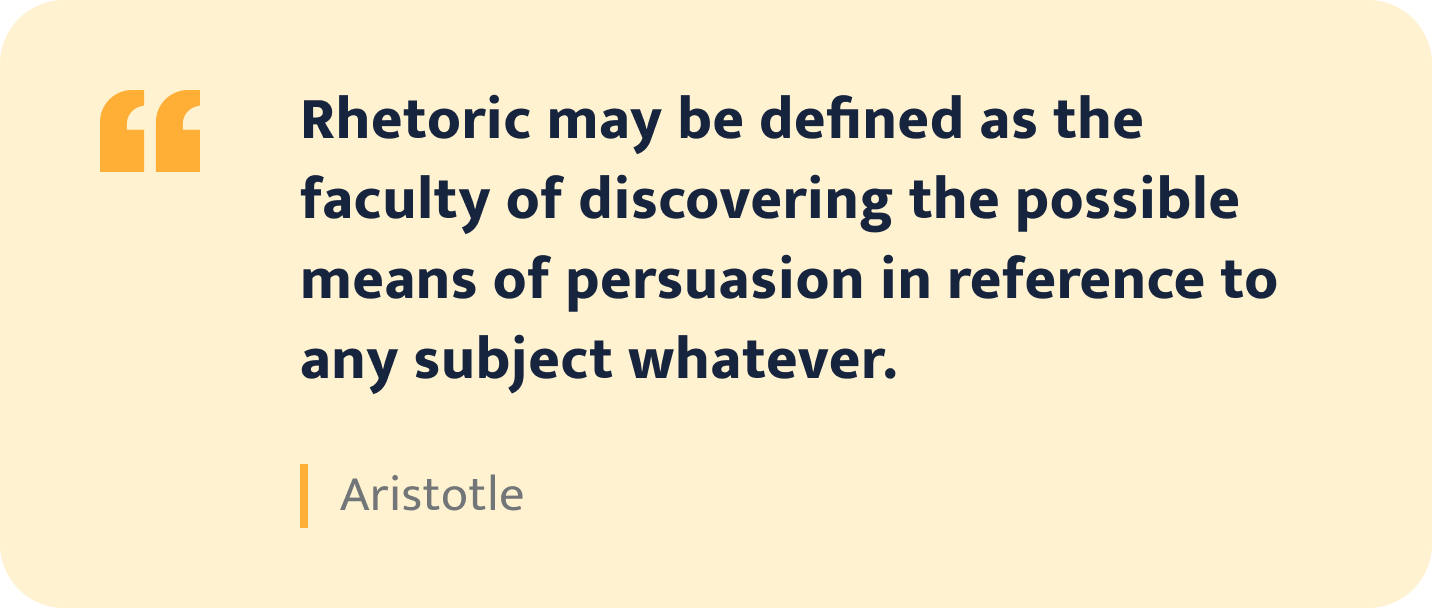
But first, outline your essay using these steps:
- Introduction/summary. Briefly summarize the text.
- Thesis. Point out the main rhetorical feature and its function you’ve discovered in the text. It’s crucial to provide supporting evidence for your thesis. Your essay should answer the question: did the author succeed as a rhetorician?
- Example of a thesis:
In his book The Adventures of Tom Sawyer, Mark Twain shows America through a child’s eyes. The social commentary is made effective through the use of irony and regional dialect.
- Example of a thesis:
- Body paragraphs. Start each paragraph with a short topic sentence that points back to the thesis. In this section, explore the elements of the rhetorical situation:
- Ethos, which refers to the author’s credibility.
- Pathos, or the emotional appeal.
- Logos, which means persuasion by showing evidence.
- Kairos, referring to the timing.
- Stasis, or the situation when the argument “gets stuck” due to the opinion difference.
- Conclusion. Make a final assessment of the text and review your argument.
We hope this article helped you find a good topic for a rhetorical analysis essay. We also hope that it helped you understand how to write it perfectly.
Good luck with your assignment!
Further reading:
- A List of 175 Interesting Cultural Topics to Write About
- 200 Pop Culture Topics for an A+ Essay
- 150+ Excellent Narrative Essay Topics
- Good Book Report: How to Write, Topics, 32 Tips and Ideas
- 260 Good Descriptive Essay Topics and Writing Tips
🔍 References
- Rhetorical Analysis: Miami University
- The Best Film Monologues Ever And Why You Have To See Them: New York Film Academy
- 27 Companies With Really Catchy Slogans & Brand Taglines: HubSpot.com
- Sample Ad Analysis: Indian Hills Community College
- 50 Essential Non-fiction Books You’ll Actually Read: AbeBooks
- Rhetorical Analysis: Texas A&M University
- Top 100 Speeches of the 20th Century by Rank: American Rhetoric
- The Rhetorical Analysis of Poetry: Edutopia
- Rhetorical Situations: Purdue University







![251 Hottest Macroeconomics Research Paper Topics [2026]](https://custom-writing.org/blog/wp-content/uploads/2021/01/Micro-Macroeconomics-Research-Topics-284x153.jpg)



